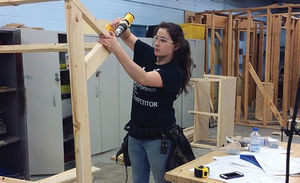The Evolution Of Policing And Security In Education
Career Opportunities In a world plagued by strife and instability, the demand for public and private security services are growing exponentially.
Whether you want to serve your community or country, protect the public, or help people in need — policing and protection is a respected profession with serious responsibilities. If you are looking for more than just a job and want to make a real difference in your community, you could consider a career in police services, investigation, or private security.
“Traditional policing has evolved to include immigration forensics and investigative skills.”
Challenging and rewarding careers
Security has developed alongside police services to the point where many skills are interchangeable. Traditional policing has evolved to include immigration, forensics, and investigative skills. Recent reports calling for the modernizing of police services could create a shift towards outsourcing resources which may include those that could be covered by protection, security, and investigation entities. Challenging and rewarding careers can be found within the civil and criminal justice systems: such as, correctional services (community and institutional), Canada border service agencies, immigration organizations, and government organizations. Other opportunities also exist in residential, commercial, and industrial security agencies; airport security; the Canadian Forces; hotels, casinos, retail establishments, or within the future restructure of urban policing.
Small class sizes and state-of-the-art facilities combined with professors who possess industry experience help students graduate with a range of practical, problem-solving, and administrative skills to fill roles across the expanse of criminal justice careers.
Bringing new technologies into the classroom
New technologies have brought state-of-the-art simulators into the classroom creating life-like situations to help students test and practice their skills before graduation. Students pursuing careers in policing could be taught in driving simulators where instructors challenge them by programming in obstacles as students drive. Conflict resolution simulators portray on-screen characters — uncooperative or in the grip of a mental health crisis to test student negotiation and resolution skills.
For graduates who want to move into a career in criminal justice, educational institutions that offer industry partnerships that provide employment opportunities are a critical next step. Students should also look for opportunities where entry-level positions can move into specialized or niche areas such as analysis, investigations, or risk management.
Prep courses are available to help graduates prepare to write the ministry exams which are mandatory for private investigators and security guards in Ontario.
Sound interesting? Find the program that is right for you!





.jpg)














